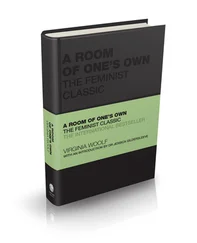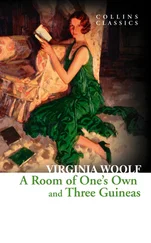Virginia Woolf - Jacob's Room
Здесь есть возможность читать онлайн «Virginia Woolf - Jacob's Room» весь текст электронной книги совершенно бесплатно (целиком полную версию без сокращений). В некоторых случаях можно слушать аудио, скачать через торрент в формате fb2 и присутствует краткое содержание. Жанр: Классическая проза, на английском языке. Описание произведения, (предисловие) а так же отзывы посетителей доступны на портале библиотеки ЛибКат.
- Название:Jacob's Room
- Автор:
- Жанр:
- Год:неизвестен
- ISBN:нет данных
- Рейтинг книги:3 / 5. Голосов: 1
-
Избранное:Добавить в избранное
- Отзывы:
-
Ваша оценка:
- 60
- 1
- 2
- 3
- 4
- 5
Jacob's Room: краткое содержание, описание и аннотация
Предлагаем к чтению аннотацию, описание, краткое содержание или предисловие (зависит от того, что написал сам автор книги «Jacob's Room»). Если вы не нашли необходимую информацию о книге — напишите в комментариях, мы постараемся отыскать её.
Jacob's Room — читать онлайн бесплатно полную книгу (весь текст) целиком
Ниже представлен текст книги, разбитый по страницам. Система сохранения места последней прочитанной страницы, позволяет с удобством читать онлайн бесплатно книгу «Jacob's Room», без необходимости каждый раз заново искать на чём Вы остановились. Поставьте закладку, и сможете в любой момент перейти на страницу, на которой закончили чтение.
Интервал:
Закладка:
"Wait till we cross the road," she said to the dog, bending down.
Happily she had recovered by that time.
"She thinks so much about England," she said. "She is so anxious-"
Bowley was defrauded as usual. Clara never confided in any one.
"Why don't the young people settle it, eh?" he wanted to ask. "What's all this about England?"-a question poor Clara could not have answered, since, as Mrs. Durrant discussed with Sir Edgar the policy of Sir Edward Grey, Clara only wondered why the cabinet looked dusty, and Jacob had never come. Oh, here was Mrs. Cowley Johnson...
And Clara would hand the pretty china teacups, and smile at the compliment-that no one in London made tea so well as she did.
"We get it at Brocklebank's," she said, "in Cursitor Street."
Ought she not to be grateful? Ought she not to be happy?
Especially since her mother looked so well and enjoyed so much talking to Sir Edgar about Morocco, Venezuela, or some such place.
"Jacob! Jacob!" thought Clara; and kind Mr. Bowley, who was ever so good with old ladies, looked; stopped; wondered whether Elizabeth wasn't too harsh with her daughter; wondered about Bonamy, Jacob-which young fellow was it?-and jumped up directly Clara said she must exercise Troy.
They had reached the site of the old Exhibition. They looked at the tulips. Stiff and curled, the little rods of waxy smoothness rose from the earth, nourished yet contained, suffused with scarlet and coral pink. Each had its shadow; each grew trimly in the diamond-shaped wedge as the gardener had planned it.
"Barnes never gets them to grow like that," Clara mused; she sighed.
"You are neglecting your friends," said Bowley, as some one, going the other way, lifted his hat. She started; acknowledged Mr. Lionel Parry's bow; wasted on him what had sprung for Jacob.
("Jacob! Jacob!" she thought.)
"But you'll get run over if I let you go," she said to the dog.
"England seems all right," said Mr. Bowley.
The loop of the railing beneath the statue of Achilles was full of parasols and waistcoats; chains and bangles; of ladies and gentlemen, lounging elegantly, lightly observant.
"'This statue was erected by the women of England...'" Clara read out with a foolish little laugh. "Oh, Mr. Bowley! Oh!" Gallop-gallop-gallop-a horse galloped past without a rider. The stirrups swung; the pebbles spurted.
"Oh, stop! Stop it, Mr. Bowley!" she cried, white, trembling, gripping his arm, utterly unconscious, the tears coming.
"Tut- tut!" said Mr. Bowley in his dressing-room an hour later. "Tut-tut!"-a comment that was profound enough, though inarticulately expressed, since his valet was handing his shirt studs.
Julia Eliot, too, had seen the horse run away, and had risen from her seat to watch the end of the incident, which, since she came of a sporting family, seemed to her slightly ridiculous. Sure enough the little man came pounding behind with his breeches dusty; looked thoroughly annoyed; and was being helped to mount by a policeman when Julia Eliot, with a sardonic smile, turned towards the Marble Arch on her errand of mercy. It was only to visit a sick old lady who had known her mother and perhaps the Duke of Wellington; for Julia shared the love of her sex for the distressed; liked to visit death-beds; threw slippers at weddings; received confidences by the dozen; knew more pedigrees than a scholar knows dates, and was one of the kindliest, most generous, least continent of women.
Yet five minutes after she had passed the statue of Achilles she had the rapt look of one brushing through crowds on a summer's afternoon, when the trees are rustling, the wheels churning yellow, and the tumult of the present seems like an elegy for past youth and past summers, and there rose in her mind a curious sadness, as if time and eternity showed through skirts and waistcoasts, and she saw people passing tragically to destruction. Yet, Heaven knows, Julia was no fool. A sharper woman at a bargain did not exist. She was always punctual. The watch on her wrist gave her twelve minutes and a half in which to reach Bruton Street. Lady Congreve expected her at five.
The gilt clock at Verrey's was striking five.
Florinda looked at it with a dull expression, like an animal. She looked at the clock; looked at the door; looked at the long glass opposite; disposed her cloak; drew closer to the table, for she was pregnant-no doubt about it, Mother Stuart said, recommending remedies, consulting friends; sunk, caught by the heel, as she tripped so lightly over the surface.
Her tumbler of pinkish sweet stuff was set down by the waiter; and she sucked, through a straw, her eyes on the looking-glass, on the door, now soothed by the sweet taste. When Nick Bramham came in it was plain, even to the young Swiss waiter, that there was a bargain between them. Nick hitched his clothes together clumsily; ran his fingers through his hair; sat down, to an ordeal, nervously. She looked at him; and set off laughing; laughed-laughed-laughed. The young Swiss waiter, standing with crossed legs by the pillar, laughed too.
The door opened; in came the roar of Regent Street, the roar of traffic, impersonal, unpitying; and sunshine grained with dirt. The Swiss waiter must see to the newcomers. Bramham lifted his glass.
"He's like Jacob," said Florinda, looking at the newcomer.
"The way he stares." She stopped laughing.
Jacob, leaning forward, drew a plan of the Parthenon in the dust in Hyde Park, a network of strokes at least, which may have been the Parthenon, or again a mathematical diagram. And why was the pebble so emphatically ground in at the corner? It was not to count his notes that he took out a wad of papers and read a long flowing letter which Sandra had written two days ago at Milton Dower House with his book before her and in her mind the memory of something said or attempted, some moment in the dark on the road to the Acropolis which (such was her creed) mattered for ever.
"He is," she mused, "like that man in Moliere."
She meant Alceste. She meant that he was severe. She meant that she could deceive him.
"Or could I not?" she thought, putting the poems of Donne back in the bookcase. "Jacob," she went on, going to the window and looking over the spotted flower-beds across the grass where the piebald cows grazed under beech trees, "Jacob would be shocked."
The perambulator was going through the little gate in the railing. She kissed her hand; directed by the nurse, Jimmy waved his.
"HE'S a small boy," she said, thinking of Jacob.
And yet- Alceste?
"What a nuisance you are!" Jacob grumbled, stretching out first one leg and then the other and feeling in each trouser-pocket for his chair ticket.
"I expect the sheep have eaten it," he said. "Why do you keep sheep?"
"Sorry to disturb you, sir," said the ticket-collector, his hand deep in the enormous pouch of pence.
"Well, I hope they pay you for it," said Jacob. "There you are. No. You can stick to it. Go and get drunk."
He had parted with half-a-crown, tolerantly, compassionately, with considerable contempt for his species.
Even now poor Fanny Elmer was dealing, as she walked along the Strand, in her incompetent way with this very careless, indifferent, sublime manner he had of talking to railway guards or porters; or Mrs. Whitehorn, when she consulted him about her little boy who was beaten by the schoolmaster.
Sustained entirely upon picture post cards for the past two months, Fanny's idea of Jacob was more statuesque, noble, and eyeless than ever. To reinforce her vision she had taken to visiting the British Museum, where, keeping her eyes downcast until she was alongside of the battered Ulysses, she opened them and got a fresh shock of Jacob's presence, enough to last her half a day. But this was wearing thin. And she wrote now-poems, letters that were never posted, saw his face in advertisements on hoardings, and would cross the road to let the barrel-organ turn her musings to rhapsody. But at breakfast (she shared rooms with a teacher), when the butter was smeared about the plate, and the prongs of the forks were clotted with old egg yolk, she revised these visions violently; was, in truth, very cross; was losing her complexion, as Margery Jackson told her, bringing the whole thing down (as she laced her stout boots) to a level of mother-wit, vulgarity, and sentiment, for she had loved too; and been a fool.
Читать дальшеИнтервал:
Закладка:
Похожие книги на «Jacob's Room»
Представляем Вашему вниманию похожие книги на «Jacob's Room» списком для выбора. Мы отобрали схожую по названию и смыслу литературу в надежде предоставить читателям больше вариантов отыскать новые, интересные, ещё непрочитанные произведения.
Обсуждение, отзывы о книге «Jacob's Room» и просто собственные мнения читателей. Оставьте ваши комментарии, напишите, что Вы думаете о произведении, его смысле или главных героях. Укажите что конкретно понравилось, а что нет, и почему Вы так считаете.











